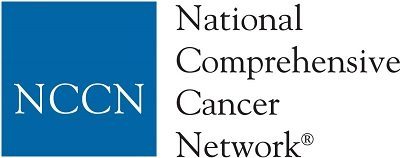NCCN released recommendations for the use of hematopoietic growth factors during the COVID-19 pandemic

In response to the COVID-19 pandemic, National Comprehensive Cancer Network® (NCCN®) has released recommendations for the use of hematopoietic growth factors during this time.
The recommendations have been posted on NCCN’s website, along with other COVID-19 Resources:
Hematopoietic Growth Factors Recommendations
NCCN noted that for acute myeloid leukemia (AML) and myelodysplastic syndromes (MDS), defer to the respective disease-specific recommendations.
The recommendations regarding G-CSFs are provided below. NCCN has also provided recommendations regarding anemia and erythropoietin-stimulating agent (ESA)-related issues given regional limited blood supply. For more information, please access the recommendations through the link provided above.
NCCN Short-Term Recommendations for G-CSFs Specific to Issues with COVID-19
Neutropenia-Related Considerations:
- Expand prophylactic use of granulocyte colony-stimulating factor (G-CSF) to minimize risk of febrile neutropenia, thus not adding to the overwhelming number of cases in emergency rooms (ERs) and hospitals.
- Change threshold for use of G-CSF with regimens from only high risk (>20% risk of febrile neutropenia) to intermediate (10%–20% risk of febrile neutropenia) or high risk (for reference to usual standard of care, see MGF-1 in the NCCN Guidelines for Hematopoietic Growth Factors).
- Cautionary statement: Physicians may wish to avoid use of or discontinue G-CSF in case of respiratory infection, respiratory symptoms, or confirmed or suspected COVID-19 to avoid increase in pulmonary inflammation or hypothetical risk of increasing inflammatory cytokines associated with adverse outcome.
- Expand therapeutic use if patients previously not on G-CSF develop febrile neutropenia to include all patients, not just those with a risk factor for complication. The primary goal would be to minimize days of hospitalization (for reference to usual standard of care, see MGF-4 in the NCCN Guidelines for Hematopoietic Growth Factors).
- Cautionary statement: Physicians may wish to avoid use of or discontinue G-CSF in case of respiratory infection, respiratory symptoms, or confirmed or suspected COVID-19 to avoid increase in pulmonary inflammation or hypothetical risk of increasing inflammatory cytokines associated with adverse outcome.
- Consider use of G-CSF to accelerate post-hematopoietic cell transplant recovery of absolute neutrophil count (ANC), to minimize days of hospitalization (for reference to usual standard of care, see MGF-C in the NCCN Guidelines for Hematopoietic Growth Factors). Some centers also utilize G-CSF post related and unrelated allogeneic transplants, while others do not, as there are concerns including possible increased risk of graft-versus-host disease (GVHD) (Ringden et al).
- To avoid risk of contracting COVID-19 by frequent visits to an outpatient center, consider self-administration of daily filgrastim or use of long-acting pegfilgrastim (1–3 days post chemotherapy) or on-body injector pegfilgrastim use 1 day after chemotherapy.
Find more resources
NCCN is providing documents and links from the leading cancer centers that comprise the nonprofit alliance, and sharing them all online at NCCN.org/covid-19. The site will be continuously updated as new resources become available.

